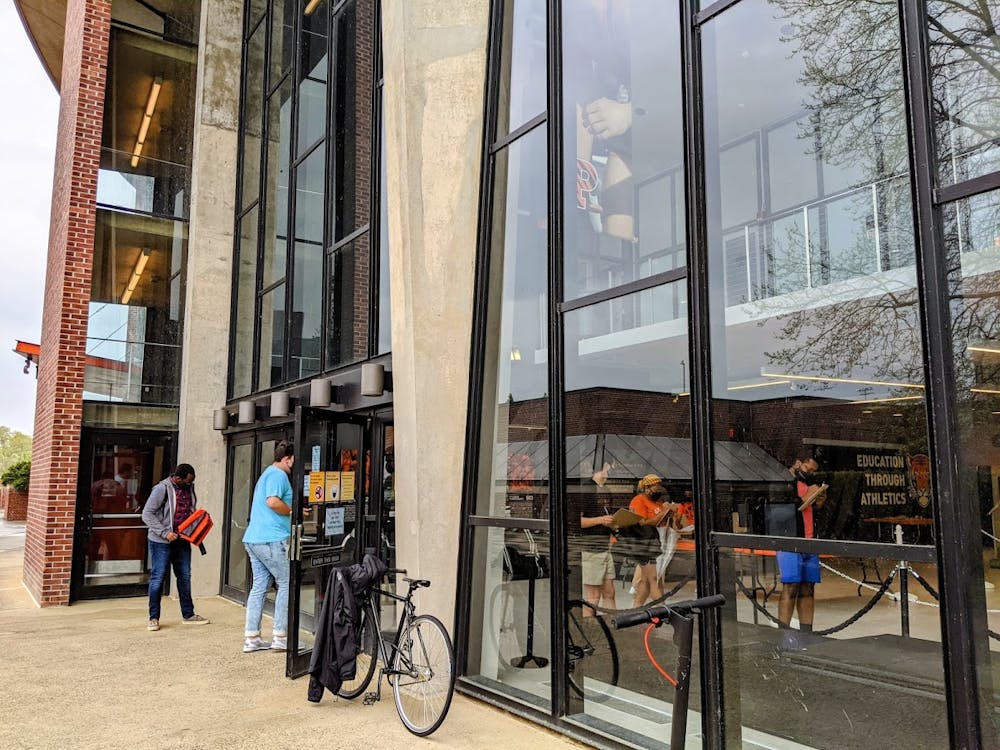The University announced on Nov. 5 that the University-led COVID-19 vaccination clinics will begin administering the Pfizer-BioNTech COVID-19 vaccine to children between ages five and 11, following authorization from the Food and Drug Administration (FDA) and the State of New Jersey. The University clinic, held in Jadwin Gymnasium, officially began administering pediatric vaccinations on Monday, Nov. 8.
For University faculty with young children, the authorization brings a sense of relief.
“This has been a particularly difficult semester for those of us with young children, who have been straddling the relative safety of the campus community and the unpredictable and unvaccinated world of the elementary schools,” wrote History Professor Kevin Kruse in an email to the Daily Princetonian. “The uncertainties there have been a constant worry for us.”
“I’m thrilled to see that the University is opening the vaccination clinic for young kids,” he added.
University Health Services (UHS) recommends the Jadwin clinic for children eight years and older. While children between five and eight will be able to receive the Pfizer vaccine at the clinics, it is recommended that they receive the vaccine in a pediatric office setting.
The University expects to see an increase in the number of people attending the clinics following the authorization and has added new measures to account for the change.
“We have expanded the number of staff members in the clinics, and we have scheduled the hours to be convenient for our campus community, allowing our members to get a vaccine while at work, during lunch, or between classes,” wrote Media Relations Specialist Ayana Gibbs, in an email to the ‘Prince.’
“That also included extending the hours for the Pfizer vaccine to make it more convenient to bring children after school,” she added.

Gibbs also specified the reason the University is running the clinics in the first place is to serve the community.
“The University is organizing vaccination clinics to facilitate the vaccination of students, employees, and their families as well as serving the local community,” Gibbs wrote. “We are willing to continue with vaccination clinics while there is high demand.”
Some professors plan to make use of the pediatric vaccination clinics held by the University.
The pandemic has been particularly difficult for Director of the Spanish Language Program Alberto Bruzos Moro, who has two children, including an immunocompromised son.

“I was very happy to learn that the vaccination clinics at the University [are] expanding vaccinations to children between ages 5 and 11,” Bruzos wrote in an email to the ‘Prince.’ “We will try to get our daughter vaccinated on [Nov. 7]. Unfortunately, our son won’t be able to get his vaccine until January.”
Other professors plan to schedule their kids’ vaccinations at their pediatrician’s office. Kruse intends to take this route, simply because the times at his local office fit better into his teaching schedule.
Paul Frymer, professor of politics and director of the Program in Law and Public Affairs, has similar plans.
“We already signed up our child for a vaccination elsewhere, but otherwise, we appreciate the University doing it and would have considered it if we hadn’t already made an appointment (and now, vaccination),” Frymer wrote in an email to the ‘Prince.’
Adults and children five years or older may attend clinics being held on Wednesdays from 12–6 p.m. on Nov. 10, Nov. 17, Dec. 1, Dec. 8, and Dec. 15.
The University strongly recommends scheduling an appointment through the New Jersey Vaccine Scheduling System, as walk-capacity will be limited. Waiting outdoors may be required. Those with appointments will be prioritized.
Zoya Amir Gauhar is a staff writer for the ‘Prince’. She primarily reports on science and research at the University. She enjoys combining her background in science with interviews to learn more about the people behind the research. She can be reached at zgauhar@princeton.edu.








